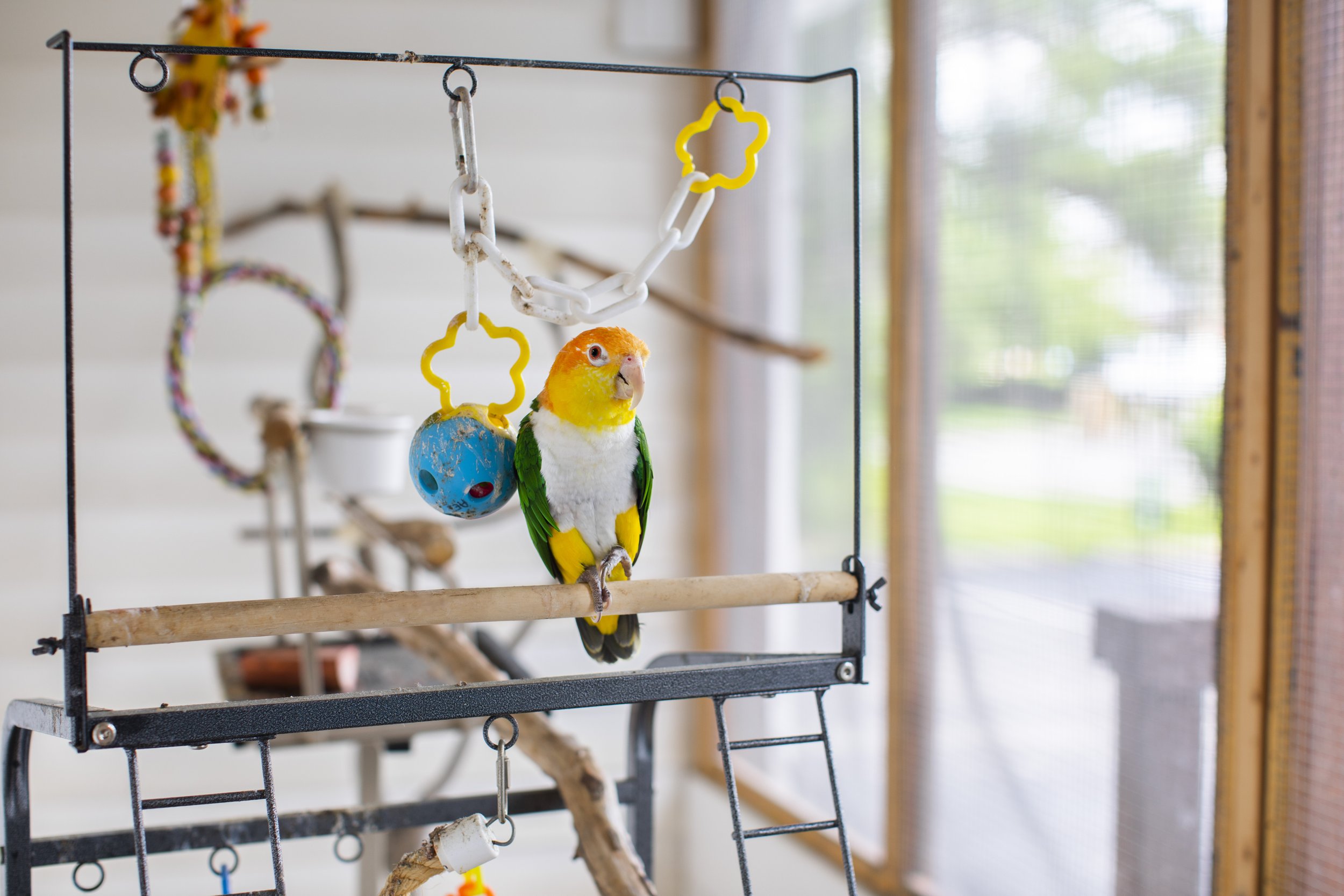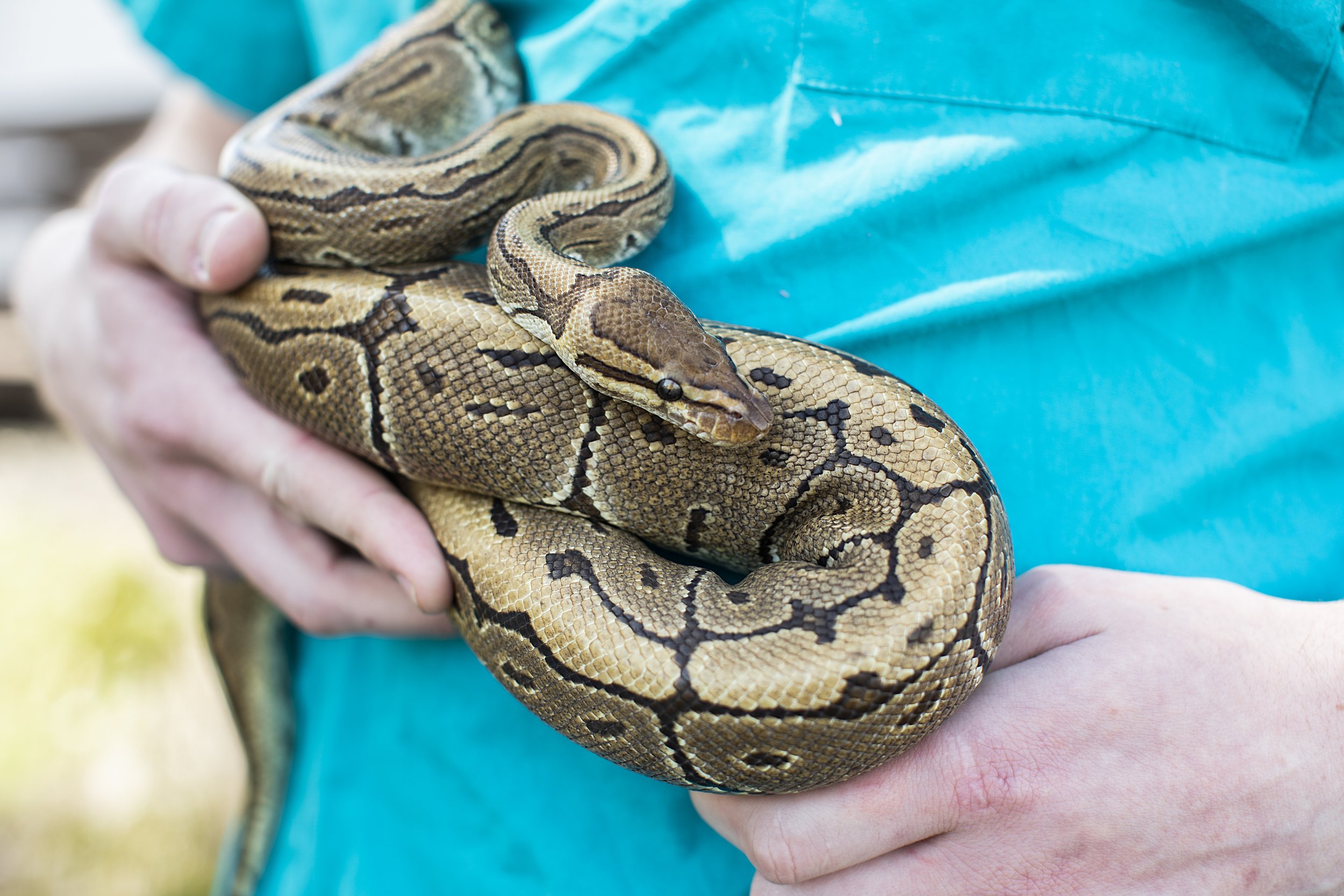Arty loves to spend time in his outdoor aviary
Although, it’s more like “prairie dog days” here at AEAC. With high heat and humidity warnings across the state, now is a great time to review hot weather protocols and risks for your exotic pets! If you have cats and dogs, similar rules may apply, but regardless of your pet’s species you should be sure to look at specific guides for that animal.
Here are some important points to consider when dealing with exotics in the heat:
At-home tips for hot weather:
Remember that most of our exotic mammals (like rabbits, guinea pigs, rats, etc.) are obligate-nasal breathers. This means that they cannot breathe through their mouths under normal circumstances. Therefore, they are more susceptible to heat stress as they are unable to pant through their mouths.
Chinchillas are fairly cold-tolerant animals, but are very highly susceptible to heat stress due to their dense fur. Guinea pigs are also more sensitive to heat, along with fur-bearing breeds of rabbit like Angoras.
Ensure your reptiles also have access to cool temperatures. In hot weather, your normally-well-regulated reptile enclosure can overheat. Make sure you are closely monitoring the temperatures in your reptile’s cage, and provide cooler areas to seek out if needed.
If your pet spends time any outdoors, ensure that you are closely monitoring them for signs of stress, and that they have plenty of shade, water, and cooler areas to seek out. Bring pets inside that are not accustomed to such temperatures.
While it may be tempting to bathe your pet to cool them off, you should not bathe any of your common mammal species, as this can be very stressful or even dangerous. Birds, however, may greatly enjoy a shower or bath to keep cool, and most reptiles also benefit from soaking. Feel free to reach out to us to ask if bathing your specific pet would be okay.
If you don’t have air conditioning inside, or the system fails, your pets may be at higher risk for heat-related injury.
Regardless of your at-home setup, ensure your pets always have access to fresh, cool water. Remember that a hot animal will drink more water than normal. Fans and frozen treats (e.g. a frozen blueberry) can also help keep your pet cool.
Car ride tips for hot weather:
Take extra precautions when transporting exotics in a vehicle. Oftentimes, car rides are very stressful on their own. Add a poorly-ventilated carrier, highly-susceptible species, and a hot car to the mix and we can see disaster strike. Simply including an ice pack under the carrier (insulated by a towel) can help keep your pet cool. Use extra caution if your pet is ill, however, as sick pets may be hypothermic on their own.
Never leave your pet unattended in a vehicle during the summer. It takes only a few minutes for an uncomfortably-hot car to become a dangerous one.
As we are still doing curbside care, if you are waiting in your vehicle with your pet and become concerned about overheating, please don’t wait to reach out to us! We can bring your pet inside for safety even if it is before your scheduled appointment time.
Signs of heat stress to watch out for include:
Mammals:
Rapid, shallow breathing, flaring the nostrils widely with breaths
Lethargy
Bright red nose/ears/paws
Birds:
Open-mouth panting
Squinted eyes, lethargy
Frequent rousing (ruffling feathers to try to expel the hot air close to their bodies)
Reptiles/amphibians:
May be difficult to determine
Holding mouth open to dissipate heat
Lethargy
Excess soaking
If you suspect that your pet may be suffering from heat stress, please call us right away at 317-879-8633. Heat exhaustion and heat stroke can be a medical emergency!
Keep cool this summer, AEAC



